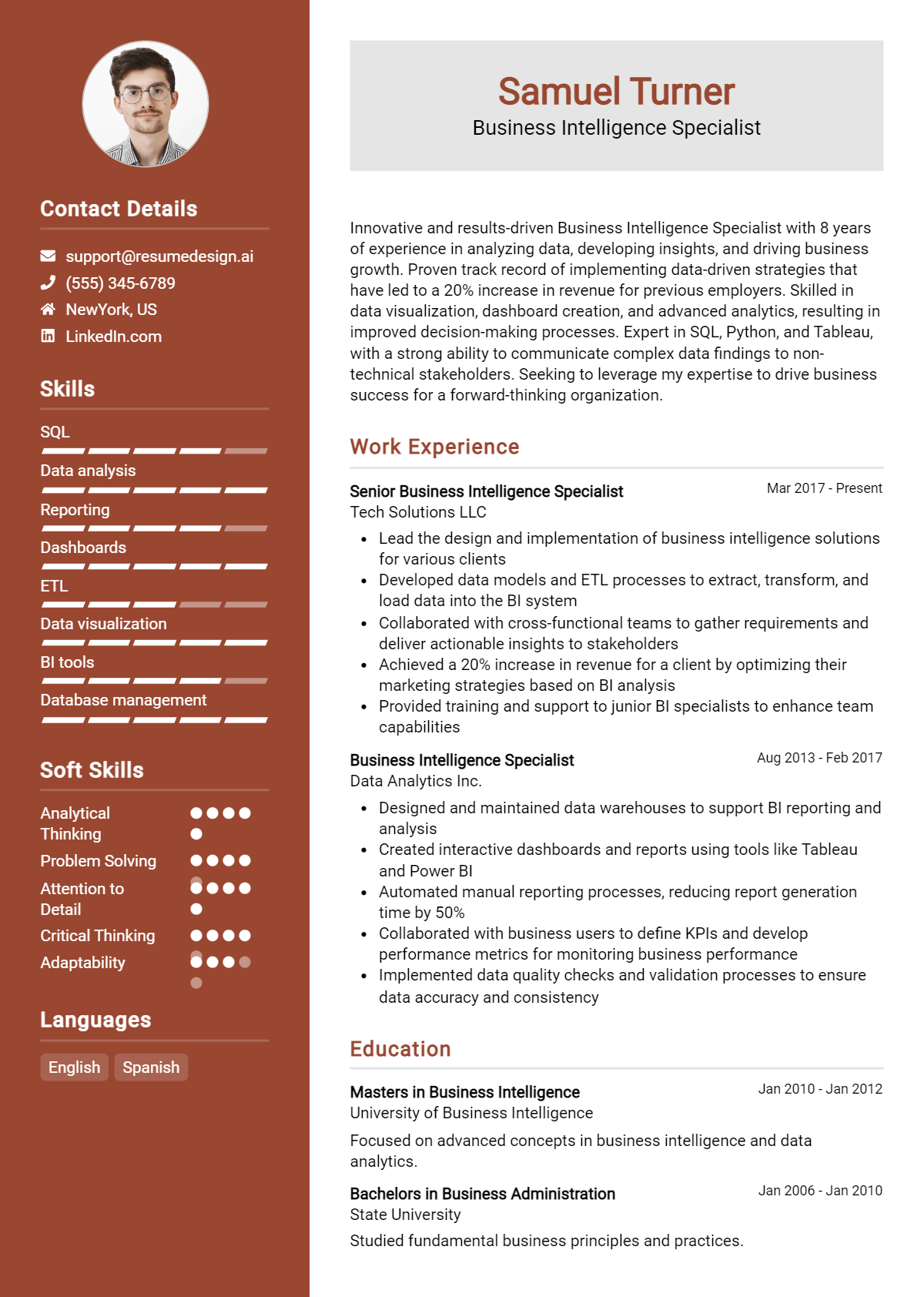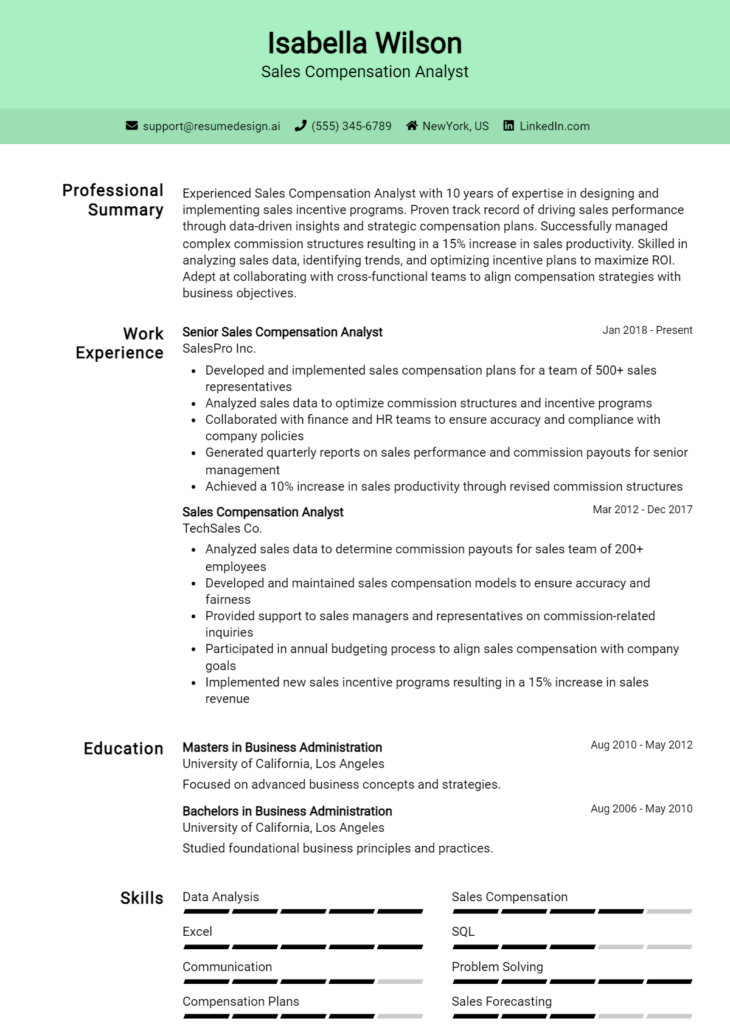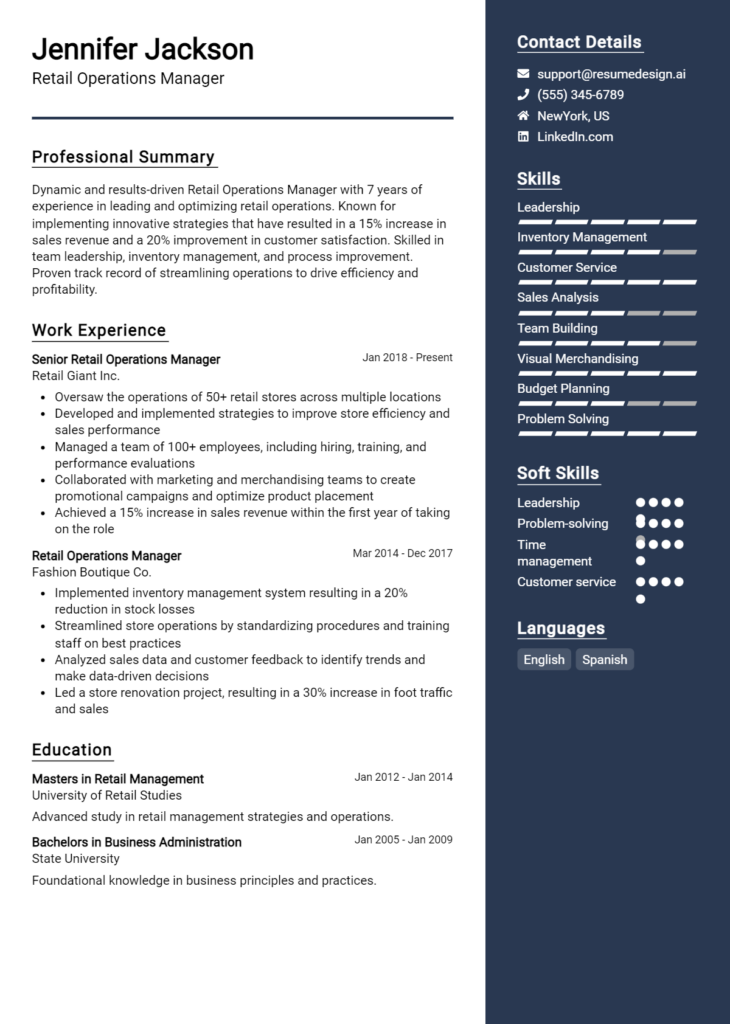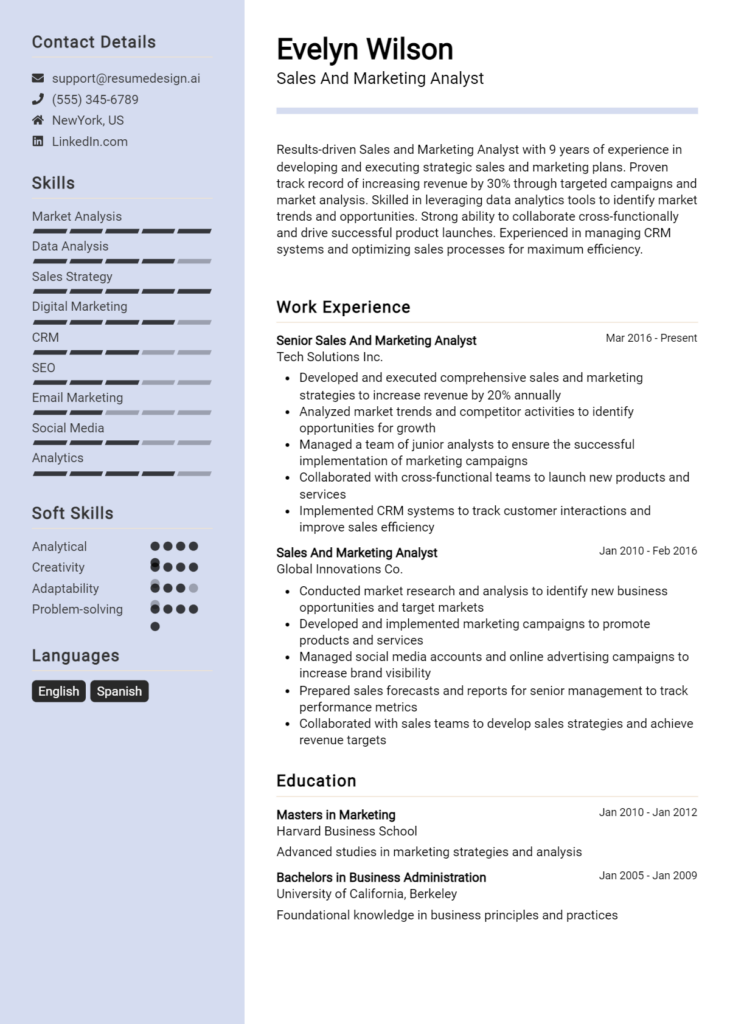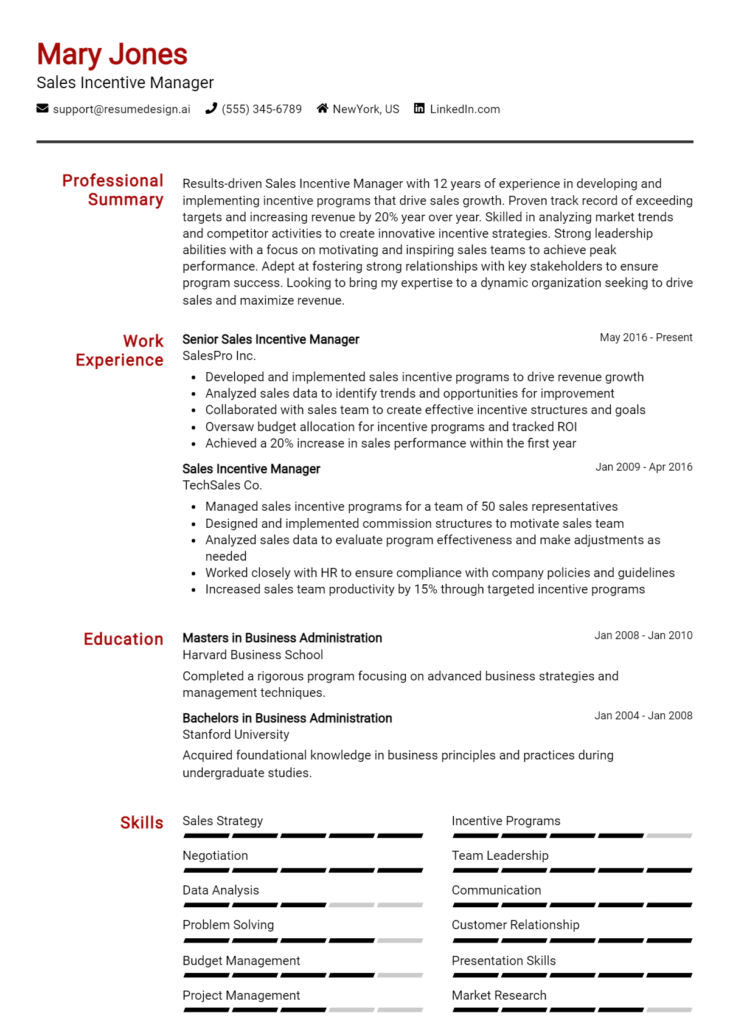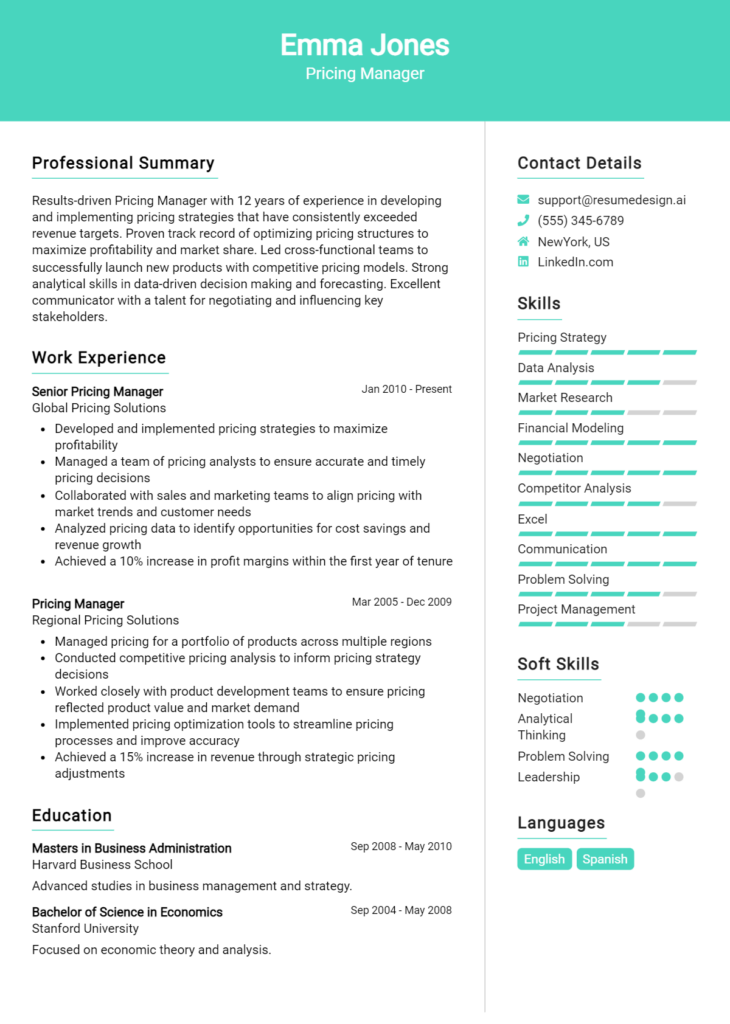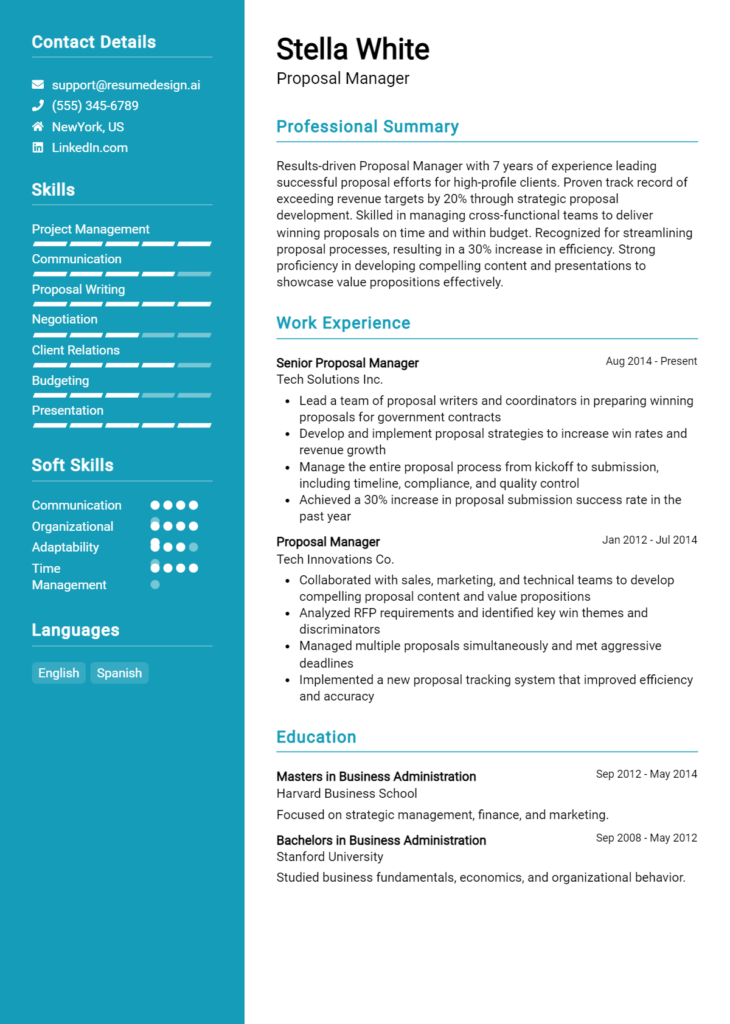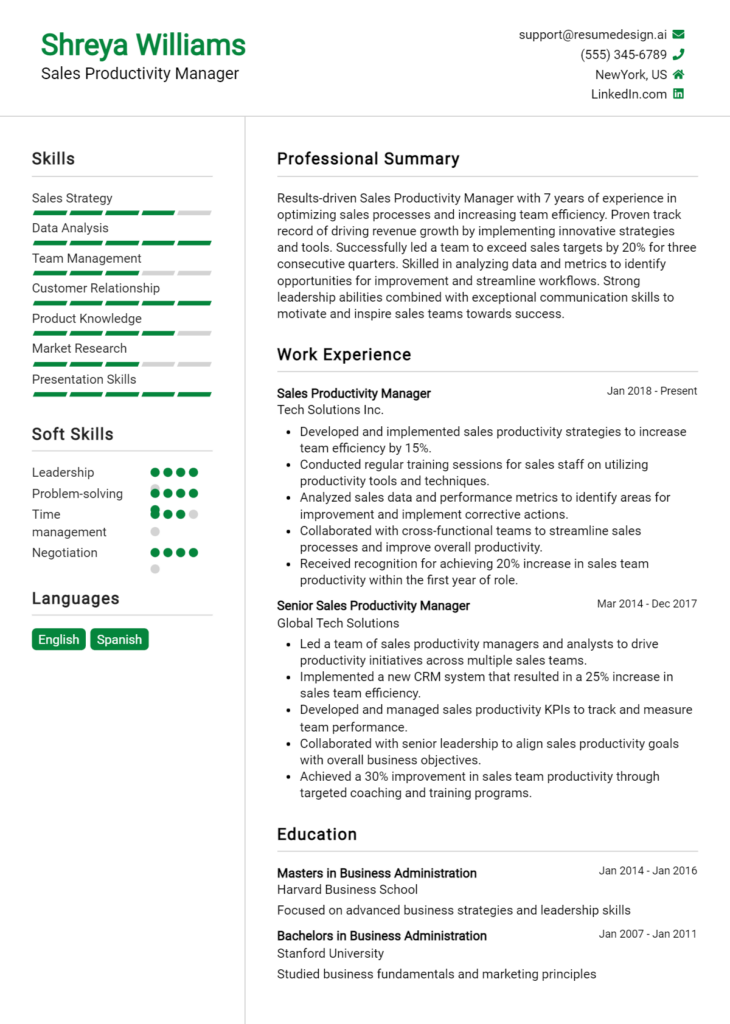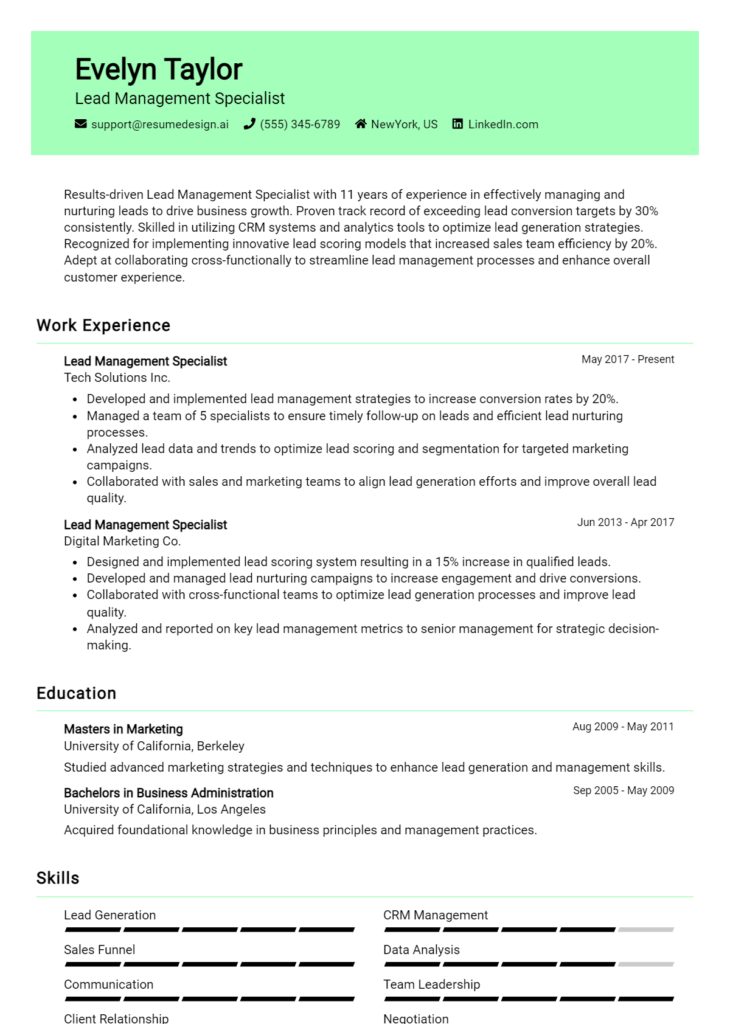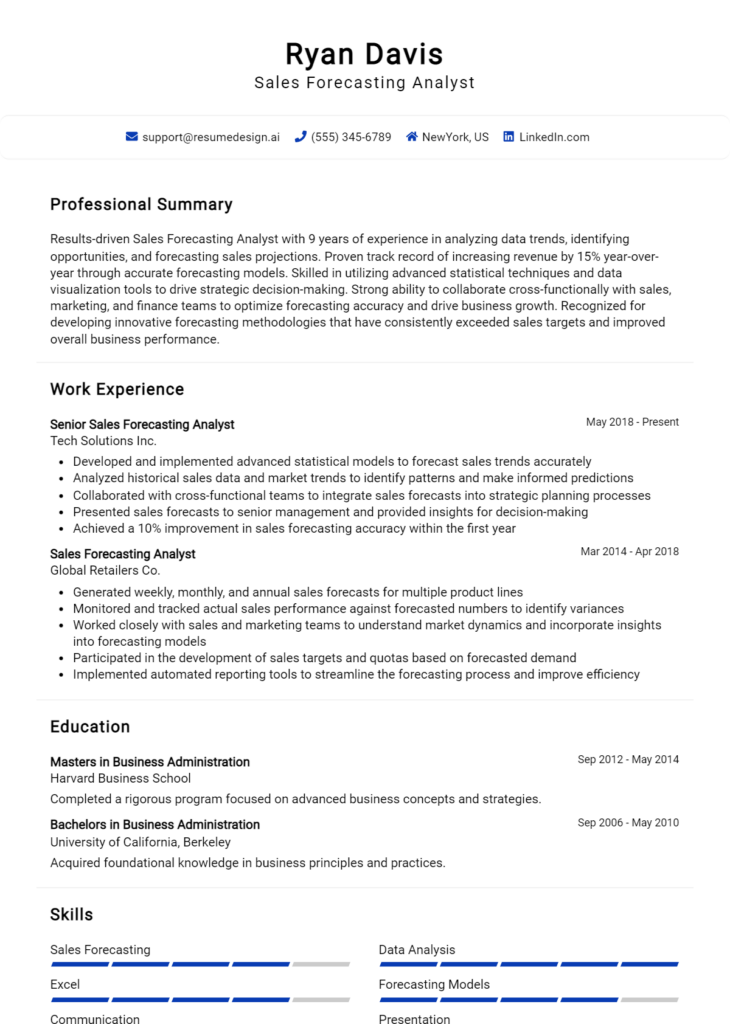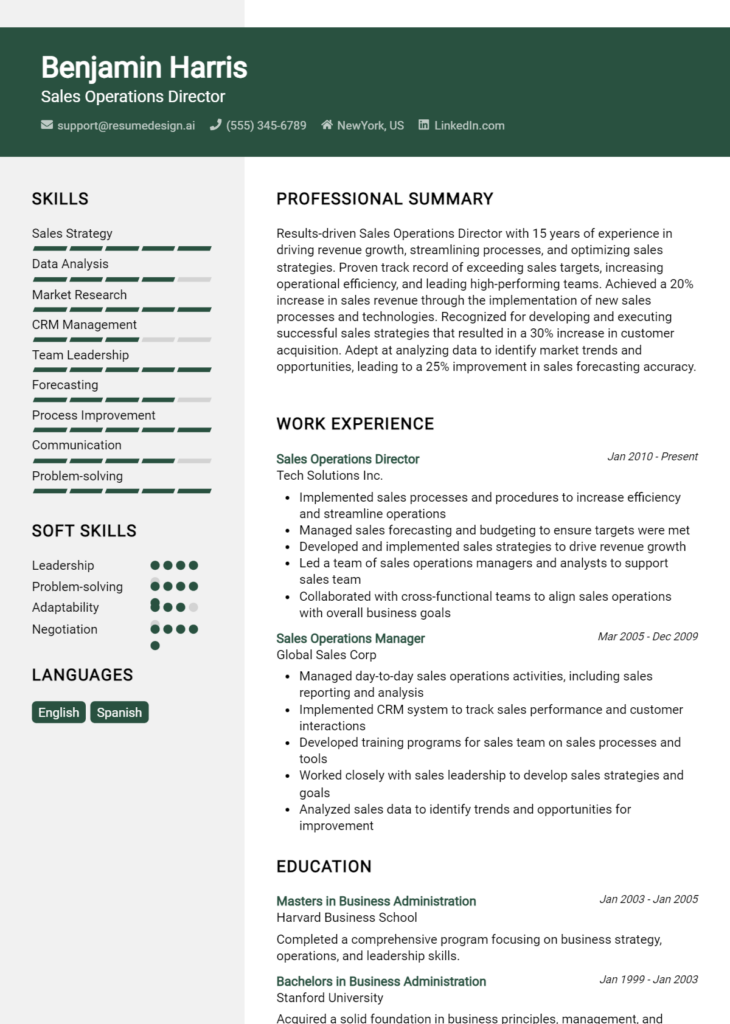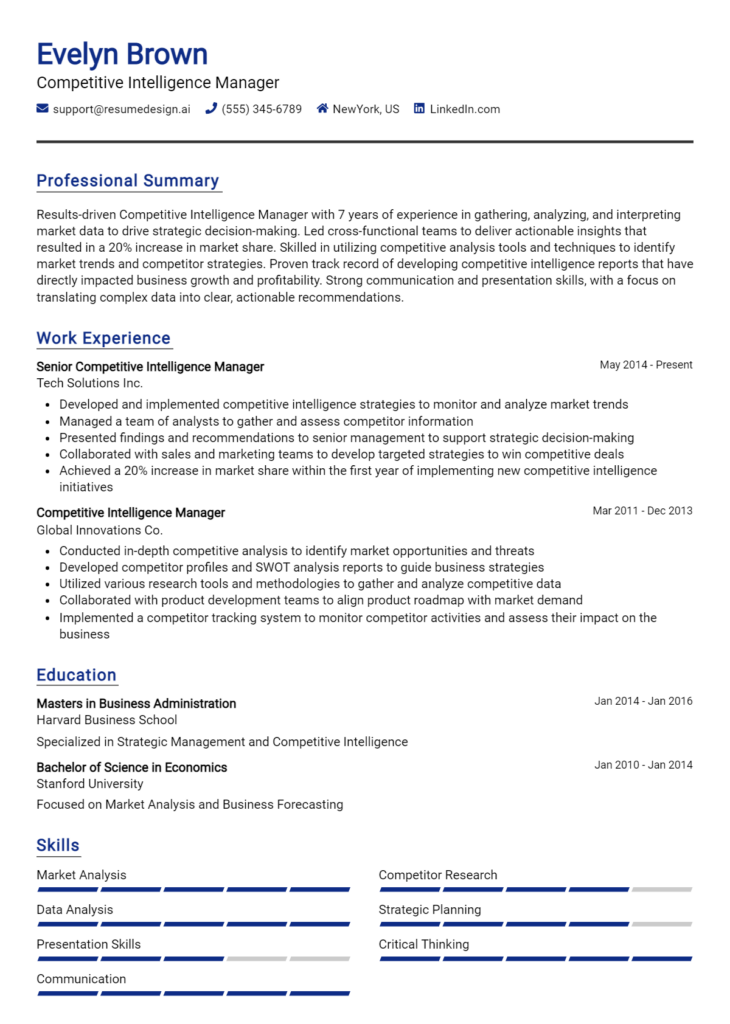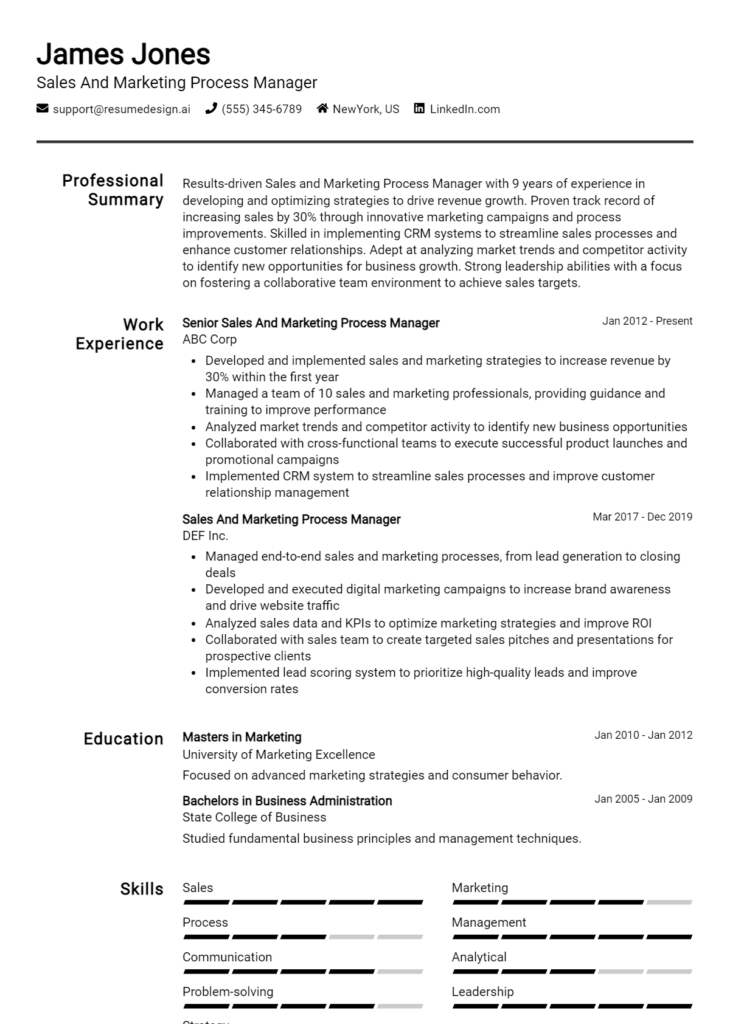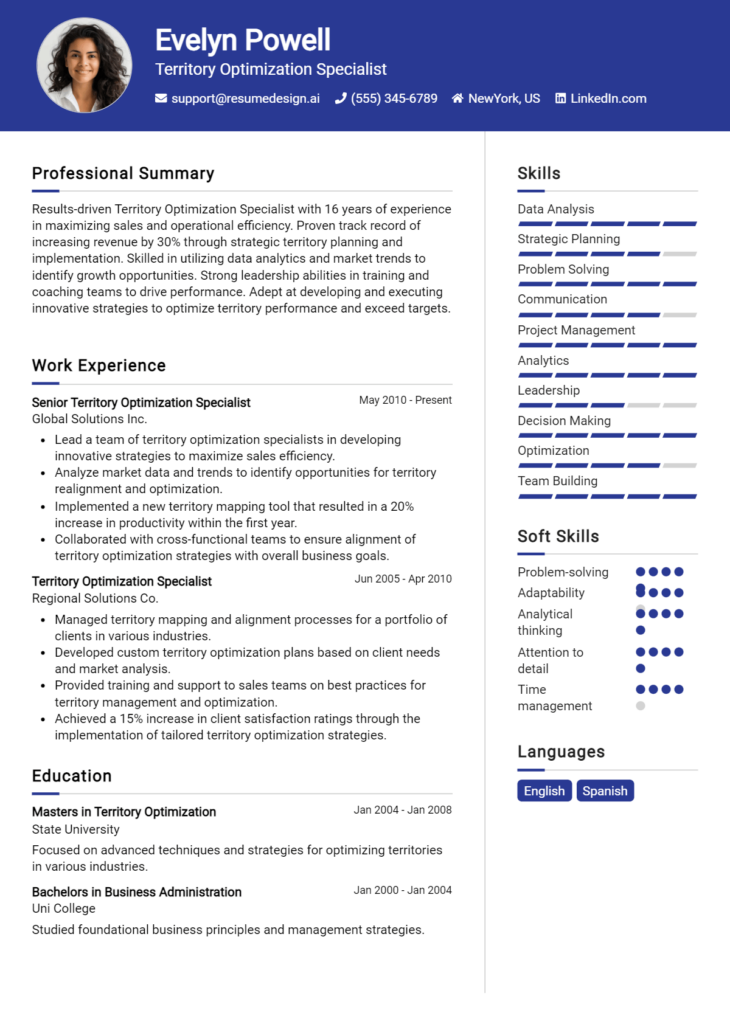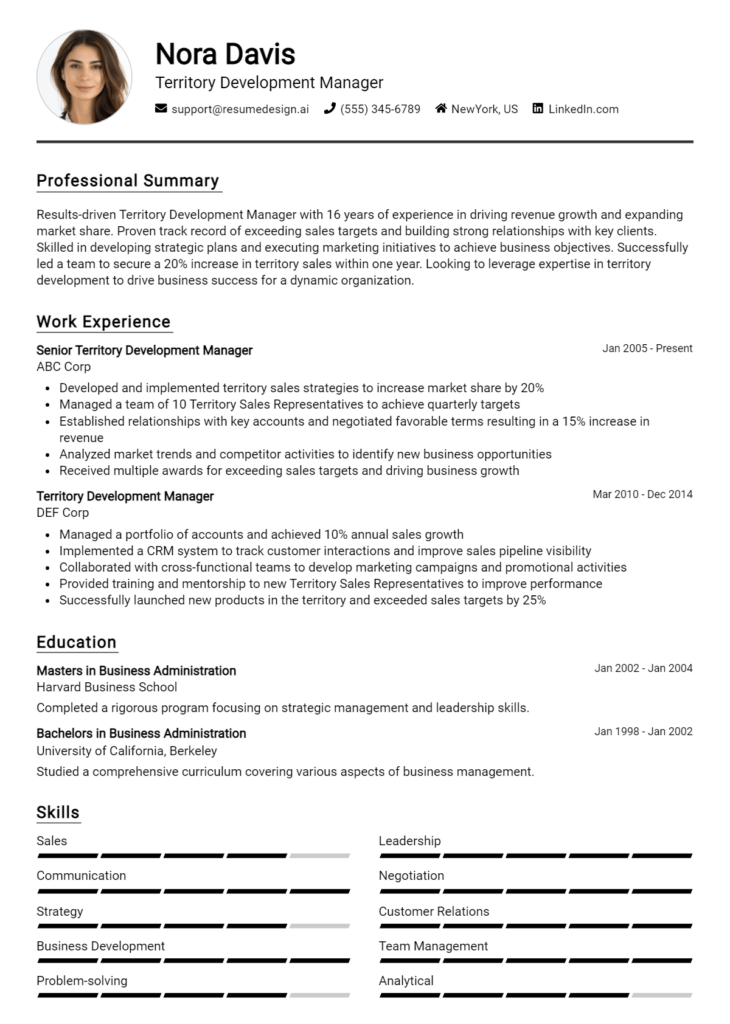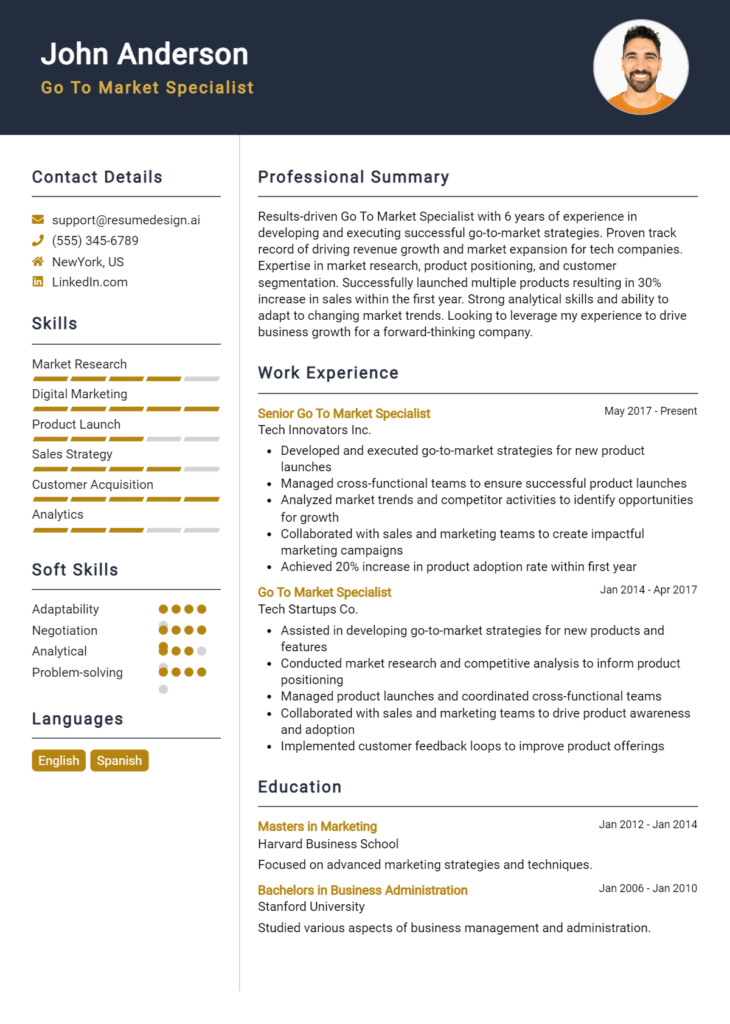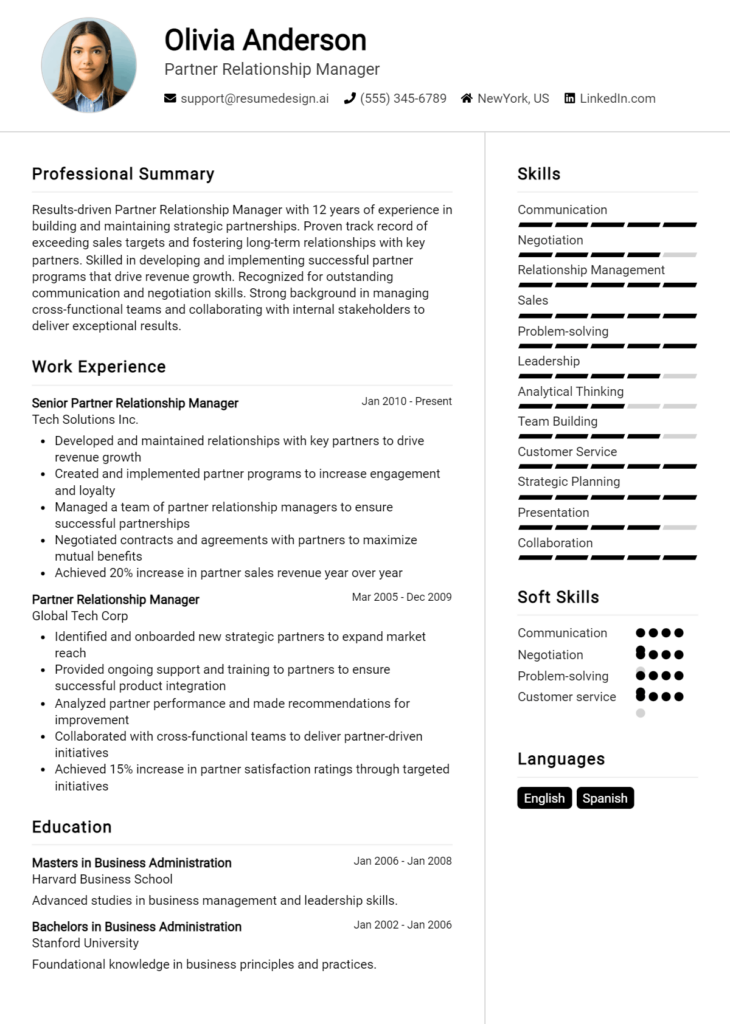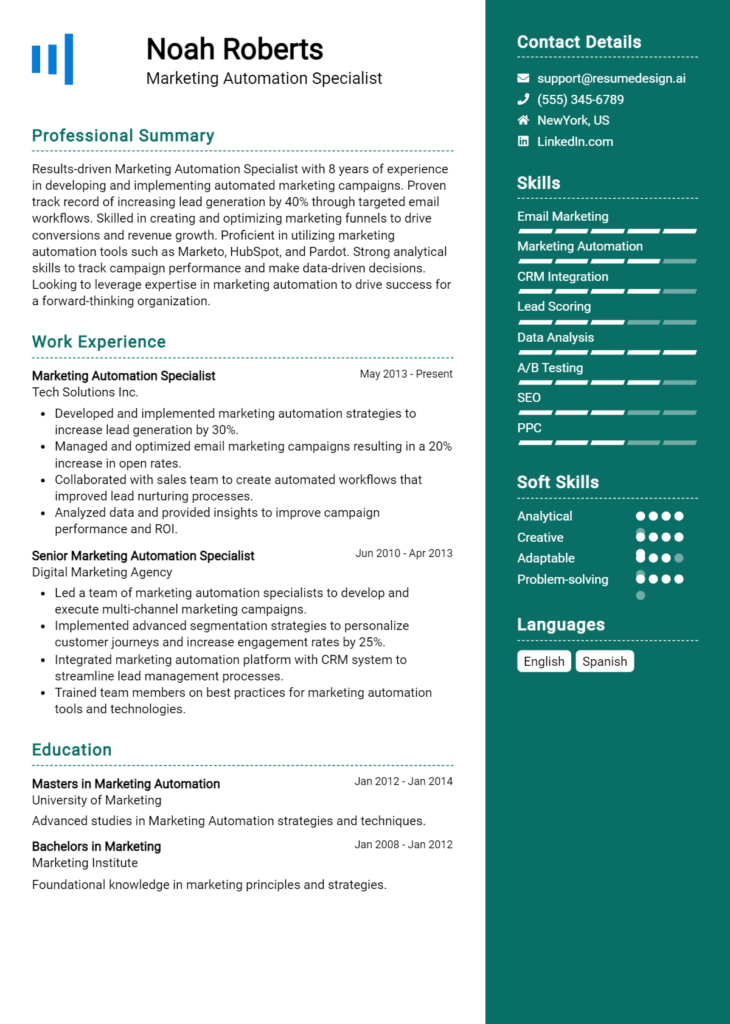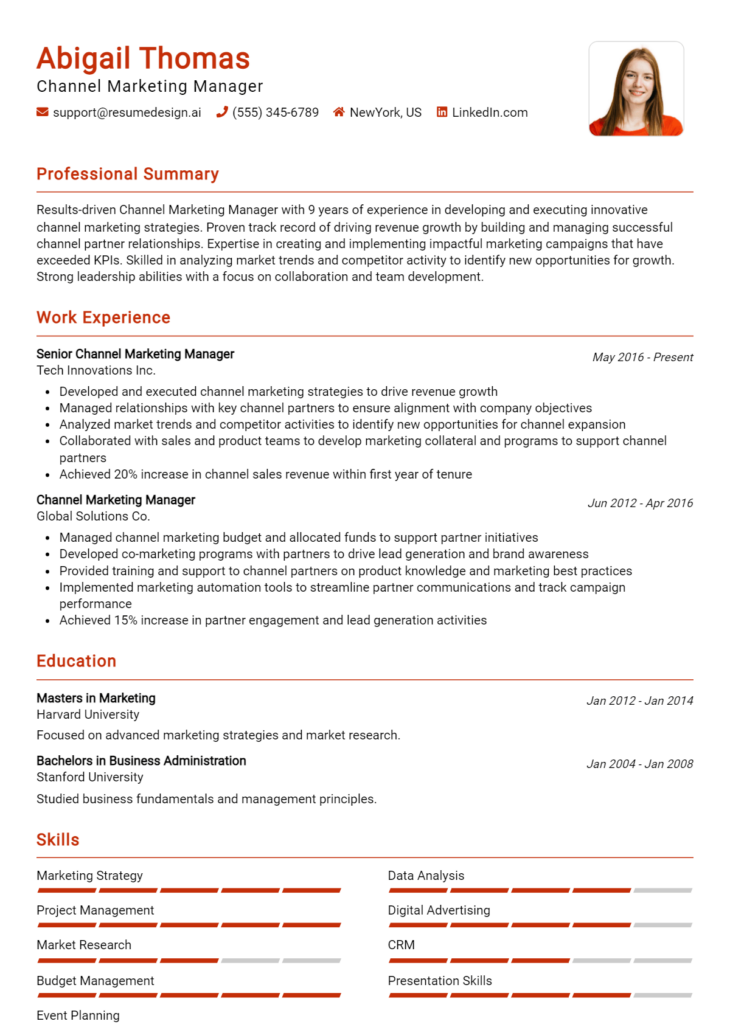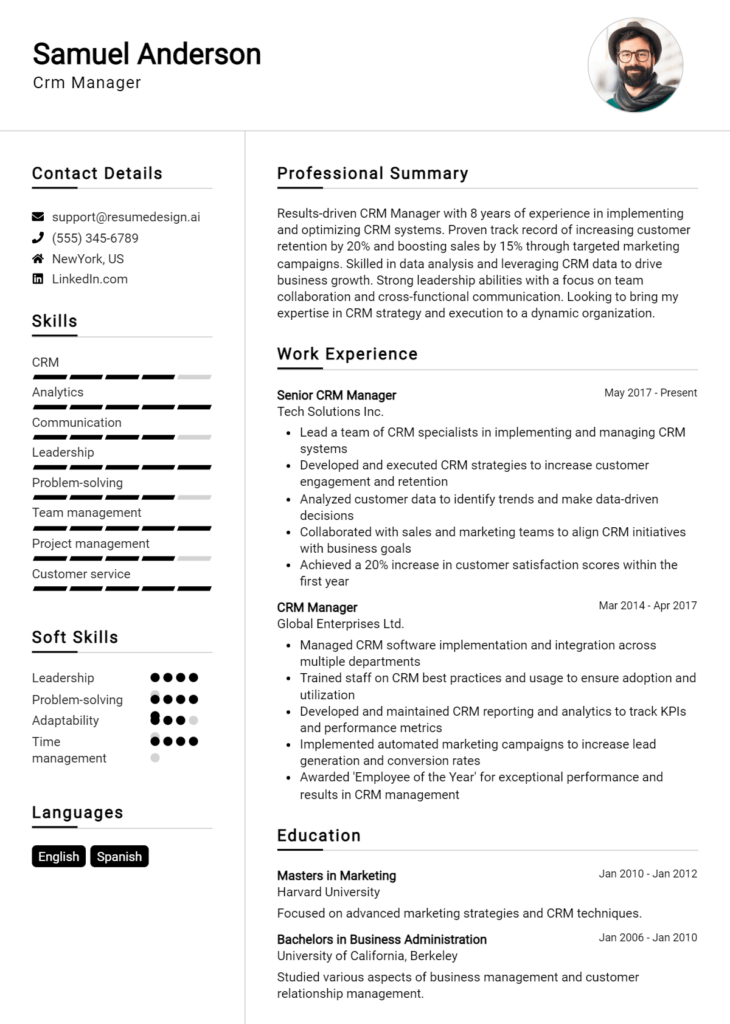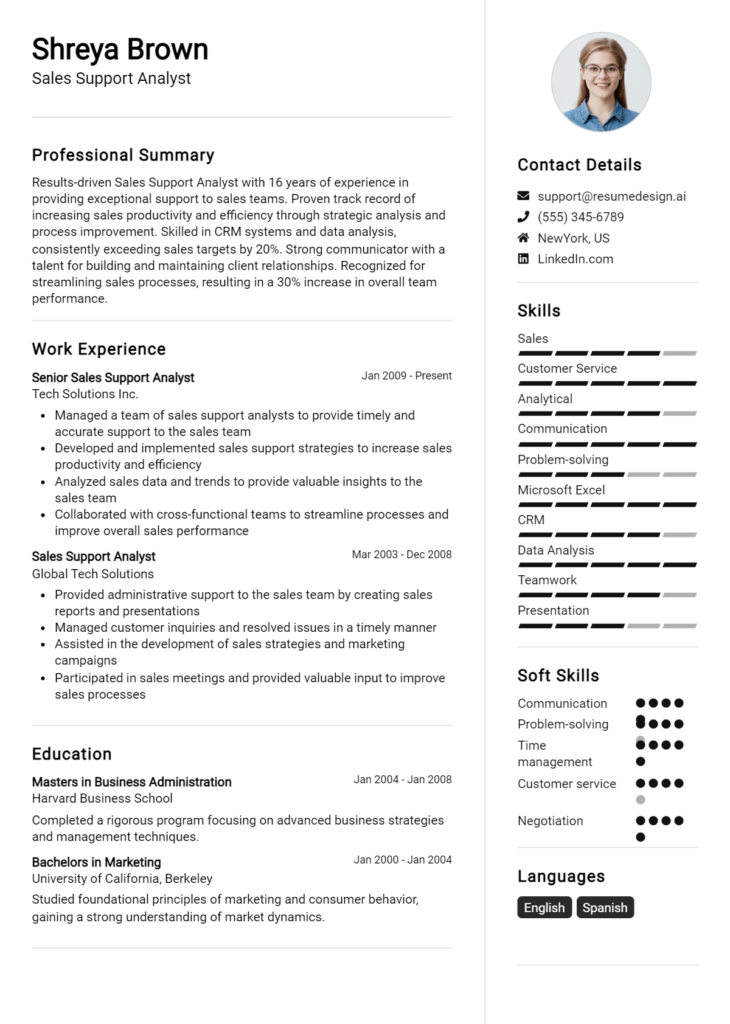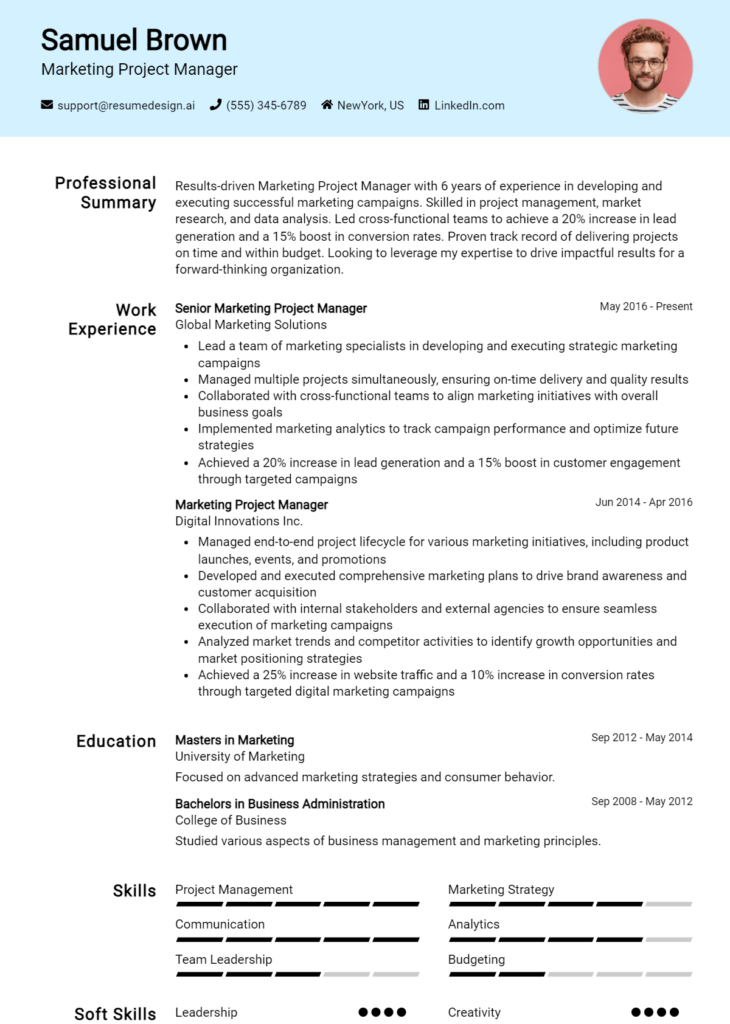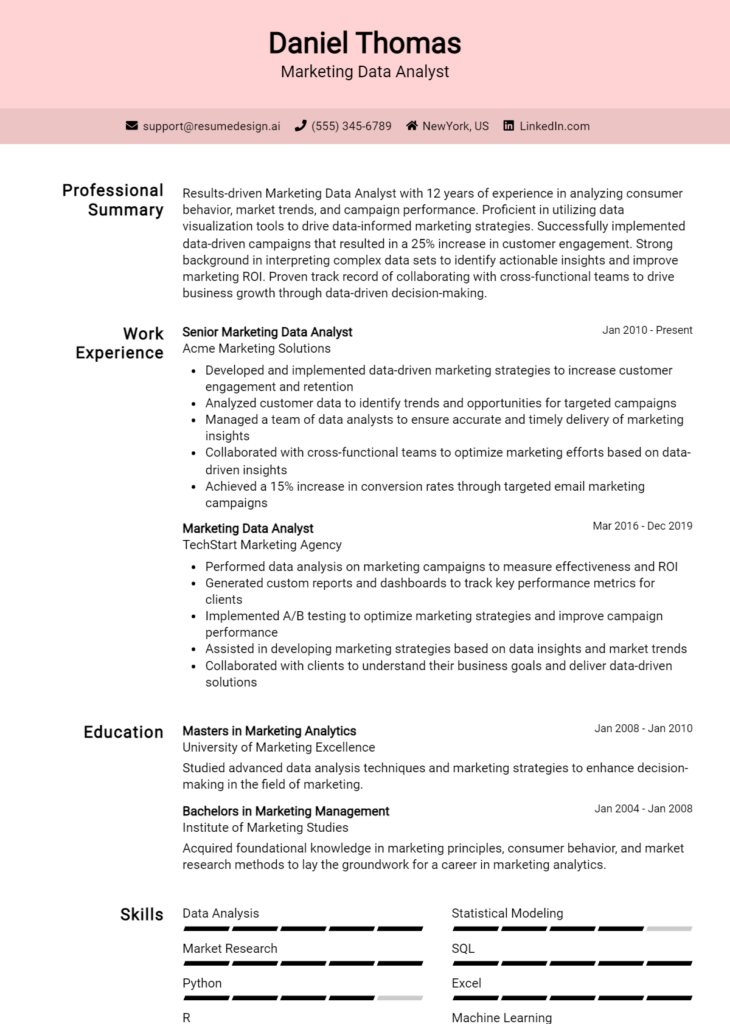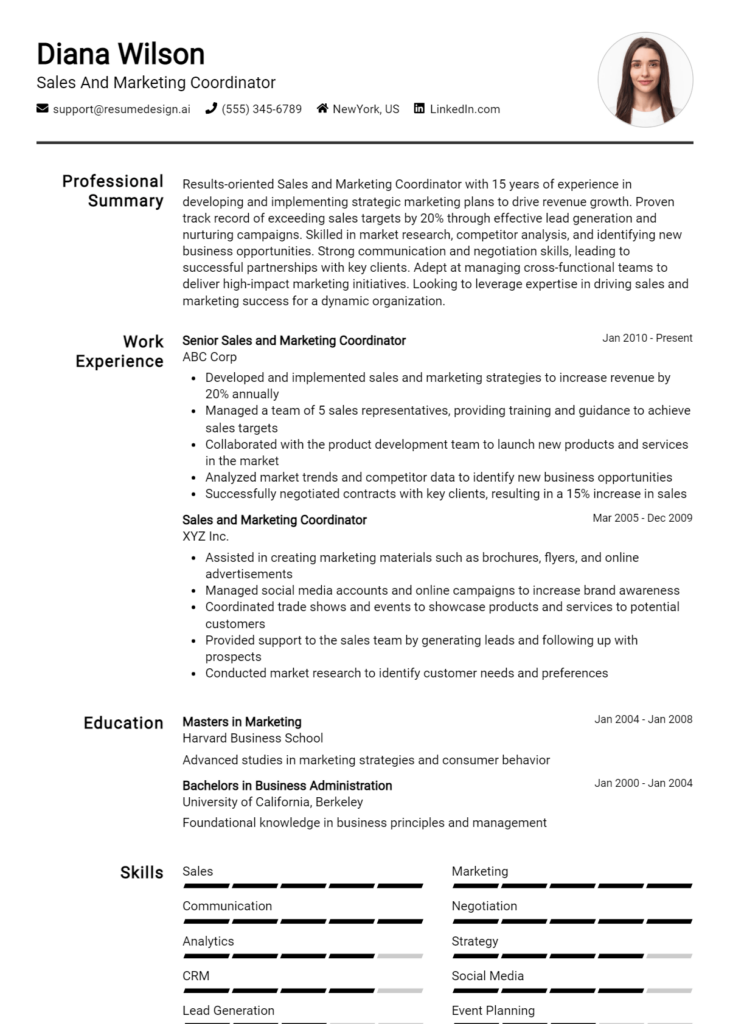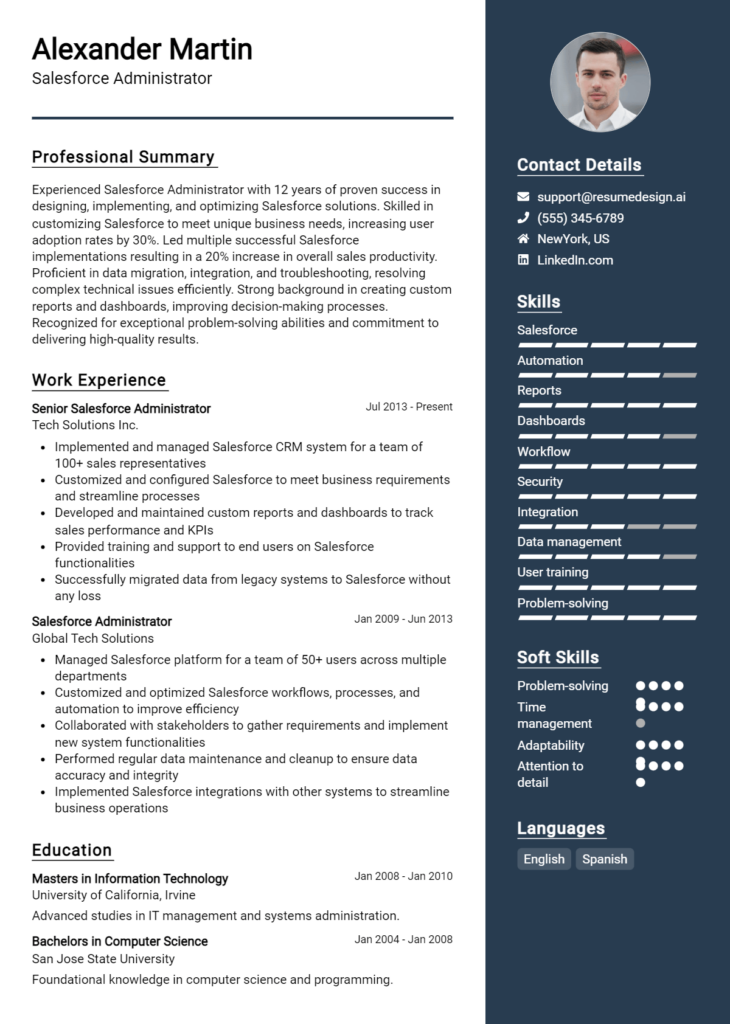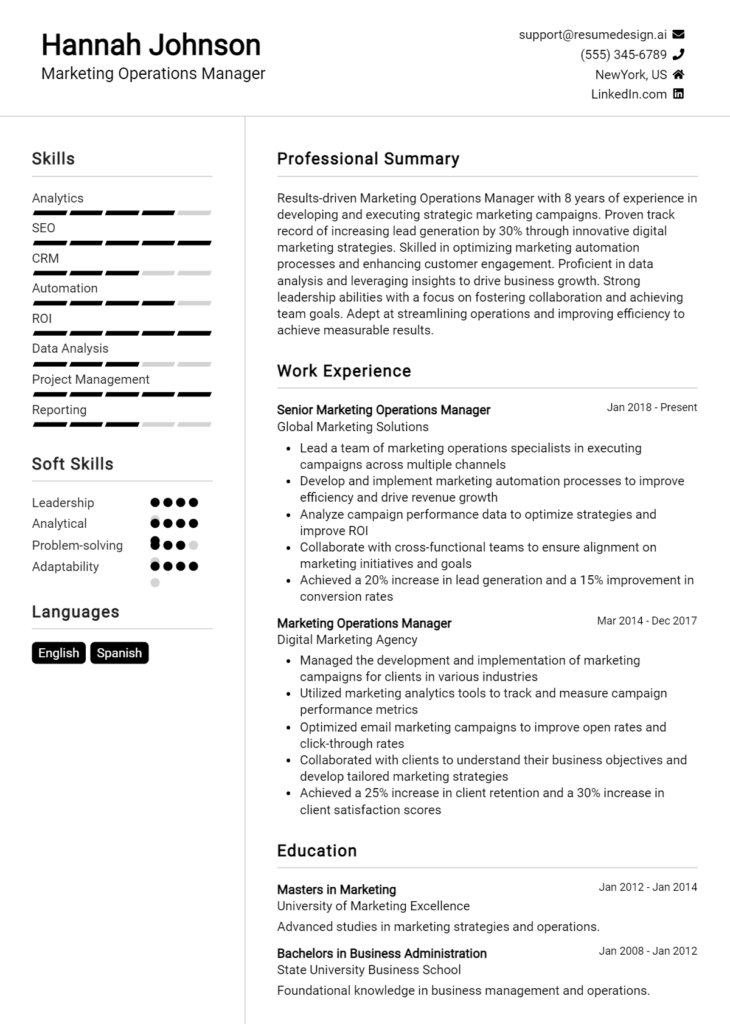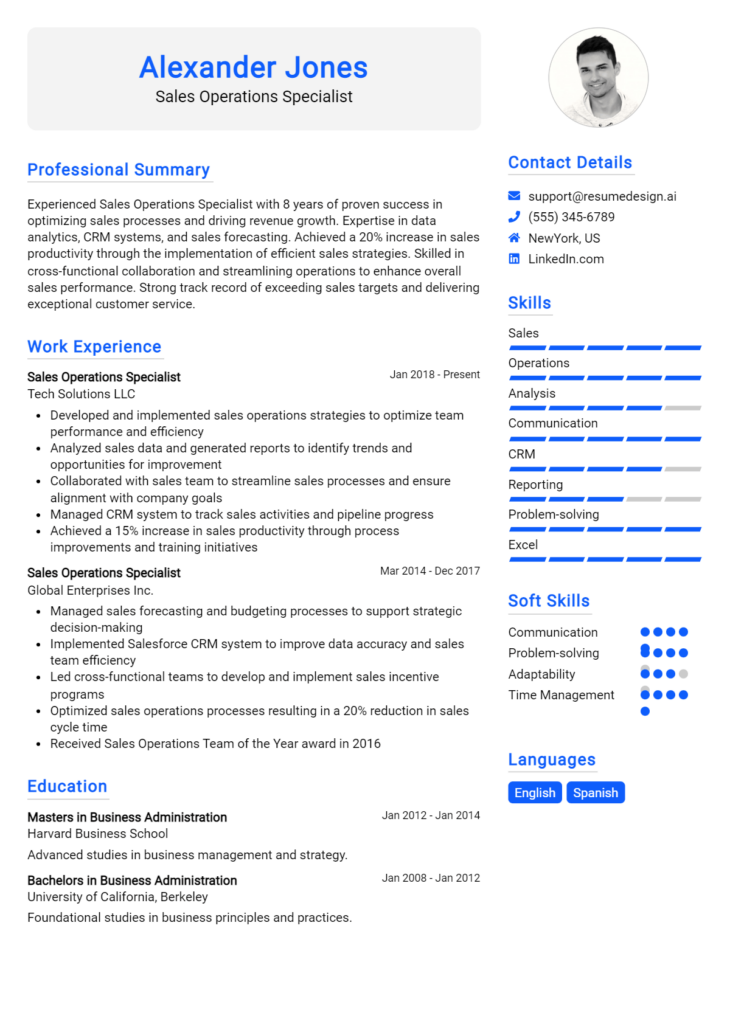Business Intelligence Specialist Core Responsibilities
A Business Intelligence Specialist plays a crucial role in transforming data into actionable insights, bridging gaps between departments such as IT, finance, and marketing. This professional utilizes technical skills in data analysis, operational understanding of business processes, and strong problem-solving abilities to drive strategic decisions. These competencies not only enhance departmental collaboration but also align with the organization’s overall objectives. A well-structured resume highlighting these qualifications can significantly enhance job prospects in this competitive field.
Common Responsibilities Listed on Business Intelligence Specialist Resume
- Develop and maintain data models and reporting systems.
- Analyze complex data sets to identify trends and insights.
- Collaborate with cross-functional teams to define business requirements.
- Design and implement BI solutions using various tools and technologies.
- Create interactive dashboards and visualizations for data presentation.
- Ensure data integrity and accuracy across all reporting platforms.
- Conduct regular performance reviews and provide actionable recommendations.
- Train and support end-users on BI tools and systems.
- Stay updated on industry trends and BI best practices.
- Participate in data governance and compliance initiatives.
High-Level Resume Tips for Business Intelligence Specialist Professionals
In the competitive field of Business Intelligence, a well-crafted resume is not just a formality; it’s your first introduction to potential employers. Your resume serves as a reflection of your skills, experiences, and achievements, making it a vital tool in standing out among candidates. For Business Intelligence Specialists, it’s essential that this document effectively communicates your analytical prowess, technical skills, and ability to drive data-driven decision-making. This guide will provide practical and actionable resume tips specifically tailored for Business Intelligence Specialist professionals, helping you create a compelling narrative that resonates with hiring managers.
Top Resume Tips for Business Intelligence Specialist Professionals
- Tailor your resume to the job description by using relevant keywords and phrases that align with the specific requirements of the role.
- Highlight your technical skills, such as proficiency in SQL, Python, R, data visualization tools (e.g., Tableau, Power BI), and database management.
- Showcase relevant experience by detailing your previous roles and responsibilities, focusing on tasks that relate directly to Business Intelligence.
- Quantify your achievements by using metrics and numbers to demonstrate your impact, such as "improved reporting accuracy by 30%."
- Include industry-specific certifications (e.g., Certified Business Intelligence Professional) to enhance your credibility and expertise.
- Emphasize your problem-solving abilities by providing examples of how you’ve used data to drive business decisions or solve complex issues.
- Utilize a clean and professional format that makes it easy for hiring managers to quickly identify your skills and achievements.
- Incorporate a summary statement at the top of your resume that succinctly captures your career goals and unique value proposition.
- Keep your resume concise, ideally one page, while ensuring all relevant information is included to grab attention effectively.
By implementing these tips, you can significantly enhance your resume’s effectiveness, making it more likely to catch the eye of hiring managers in the Business Intelligence field. A well-structured resume that showcases your skills and achievements not only makes a strong first impression but also sets you on the path to securing interviews and landing the job you desire.
Why Resume Headlines & Titles are Important for Business Intelligence Specialist
In the competitive field of Business Intelligence, a well-crafted resume headline or title can serve as the first impression a hiring manager has of a candidate. A strong headline immediately grabs attention and succinctly summarizes a candidate's key qualifications, making it easier for recruiters to identify top talent among numerous applicants. It should be concise, relevant, and directly related to the specific job being applied for, effectively communicating the candidate's unique selling points in just a few words. This is especially important in Business Intelligence, where clarity and precision are paramount.
Best Practices for Crafting Resume Headlines for Business Intelligence Specialist
- Keep it concise: Aim for no more than 10-12 words.
- Be role-specific: Tailor the headline to align with the job description.
- Highlight key skills: Include essential skills relevant to Business Intelligence.
- Use impactful language: Employ action-oriented words to convey confidence.
- Showcase achievements: If possible, mention quantifiable accomplishments.
- Incorporate industry keywords: Use terms that are commonly recognized in the field.
- Avoid jargon: Ensure clarity by steering clear of overly technical language.
- Make it stand out: Use formatting wisely to draw attention without being overly flashy.
Example Resume Headlines for Business Intelligence Specialist
Strong Resume Headlines
"Data-Driven Business Intelligence Specialist with 8 Years of Experience in Predictive Analytics"
“Results-Oriented BI Analyst Specializing in Data Visualization and Reporting Solutions”
“Business Intelligence Expert with Proven Track Record in Enhancing Operational Efficiency”
Weak Resume Headlines
“Looking for a Job in Business Intelligence”
“Experienced Professional”
The strong headlines are effective because they communicate a clear value proposition and key qualifications that resonate with hiring managers in the Business Intelligence sector. They highlight specific skills, years of experience, and relevant expertise, making it easier for recruiters to see the candidate's fit for the role. In contrast, the weak headlines fail to impress due to their vagueness and lack of specificity. They do not provide any insight into the candidate's qualifications or skills, making them forgettable in a sea of applications.
Writing an Exceptional Business Intelligence Specialist Resume Summary
A well-crafted resume summary is crucial for a Business Intelligence Specialist as it serves as the first impression that hiring managers receive. A strong summary succinctly captures attention by highlighting key skills, relevant experience, and notable accomplishments that align with the job role. This brief yet impactful section allows candidates to present their qualifications effectively, ensuring they stand out in a competitive job market. An exceptional resume summary should be concise, compelling, and tailored specifically to the role being applied for, setting the tone for the rest of the resume.
Best Practices for Writing a Business Intelligence Specialist Resume Summary
- Quantify achievements: Use numbers and metrics to demonstrate the impact of your work.
- Focus on relevant skills: Highlight technical and analytical skills that are in demand for the role.
- Tailor the summary: Customize the summary for each job application to align with the specific job description.
- Use action verbs: Start sentences with strong action verbs to convey confidence and proactivity.
- Keep it concise: Aim for 3-5 sentences that capture your professional essence without overwhelming detail.
- Include keywords: Incorporate industry-specific terminology and keywords to pass through Applicant Tracking Systems (ATS).
- Showcase soft skills: Mention interpersonal skills like communication and teamwork that are essential for collaboration.
- Be authentic: Ensure your summary reflects your genuine experiences and aspirations to create a personal connection.
Example Business Intelligence Specialist Resume Summaries
Strong Resume Summaries
Results-driven Business Intelligence Specialist with over 5 years of experience in data analysis and visualization. Successfully increased reporting efficiency by 30% through the implementation of automated dashboards, leading to more informed decision-making. Proficient in SQL, Tableau, and Python, with a strong ability to translate complex data into actionable insights.
Detail-oriented BI Specialist skilled in leveraging data analytics to drive business growth. Achieved a 40% reduction in data processing time by redesigning ETL processes, significantly enhancing data accessibility for stakeholders. Expertise in statistical analysis and advanced reporting tools.
Strategic Business Intelligence Specialist with a proven track record of enhancing operational efficiency. Led a cross-functional team to develop a predictive analytics model that increased sales forecasts accuracy by 25%. Demonstrated proficiency in Power BI and R programming.
Weak Resume Summaries
Experienced in business intelligence and data analytics. I have worked with various tools and techniques.
A professional with skills in data analysis looking to contribute to a team. I can work with data and help businesses make decisions.
The examples of strong resume summaries are considered effective because they provide specific achievements, quantify results, and clearly demonstrate relevant skills tailored to the Business Intelligence Specialist role. In contrast, the weak summaries lack detail, do not quantify any outcomes, and are overly generic, failing to convey the candidate's value or relevance to the position.
Work Experience Section for Business Intelligence Specialist Resume
The work experience section of a Business Intelligence Specialist resume is crucial as it serves as a platform to demonstrate a candidate's technical acumen, leadership capabilities, and commitment to delivering high-quality results. This section allows applicants to showcase their proficiency in data analysis tools, visualization software, and database management systems, while also highlighting their ability to manage teams effectively and collaborate cross-functionally. Quantifying achievements, such as improved reporting efficiency or increased data accuracy, is essential to stand out in a competitive job market. Additionally, aligning work experience with industry standards can significantly enhance the candidate's appeal to potential employers.
Best Practices for Business Intelligence Specialist Work Experience
- Highlight specific technical skills relevant to BI tools and methodologies.
- Quantify achievements with metrics and data to illustrate impact.
- Emphasize leadership roles and team management experiences.
- Showcase projects that align with industry standards and best practices.
- Include collaborative efforts with other departments to demonstrate teamwork.
- Utilize action verbs to convey responsibility and initiative.
- Tailor the descriptions to match the job description requirements.
- Focus on continuous improvement and innovation within BI processes.
Example Work Experiences for Business Intelligence Specialist
Strong Experiences
- Led a team of 5 analysts in the development of a new dashboard that reduced reporting time by 30%, enhancing decision-making across departments.
- Implemented a data warehousing solution that improved data retrieval speed by 50%, resulting in a 20% increase in user satisfaction scores.
- Collaborated with IT and marketing departments to launch a predictive analytics model, increasing campaign ROI by 40% in the first quarter.
- Managed the successful migration of legacy data systems to a cloud-based platform, ensuring 99.9% data integrity and reducing maintenance costs by 25%.
Weak Experiences
- Worked on various projects related to data analysis without specifying outcomes or impacts.
- Assisted team members with reporting tasks as needed, lacking clarity on personal contributions.
- Responsible for data entry and maintenance without any mention of improvements or efficiencies achieved.
- Participated in meetings focused on BI strategies but did not contribute to the implementation or execution.
The strong experiences are considered impactful because they quantify results and demonstrate clear leadership, showcasing how the candidate contributed to significant improvements and outcomes. In contrast, the weak experiences fail to provide specific achievements or responsibilities, making them vague and unimpressive, which diminishes their value in highlighting the candidate's qualifications for a Business Intelligence Specialist role.
Education and Certifications Section for Business Intelligence Specialist Resume
The education and certifications section of a Business Intelligence Specialist resume is crucial as it serves to showcase the candidate's academic credentials, relevant industry certifications, and commitment to continuous professional development. This section not only emphasizes the foundational knowledge and skills acquired through formal education but also highlights specialized training and certifications that are essential in the fast-evolving field of business intelligence. By providing details on relevant coursework and recognized credentials, candidates can significantly enhance their credibility and demonstrate their alignment with the specific requirements of the job role, making them more attractive to potential employers.
Best Practices for Business Intelligence Specialist Education and Certifications
- List degrees and certifications in reverse chronological order, starting with the most recent.
- Include only relevant coursework that pertains directly to business intelligence, data analysis, or related fields.
- Highlight advanced degrees (Master's or Ph.D.) and industry-recognized certifications such as Certified Business Intelligence Professional (CBIP) or Microsoft Certified: Data Analyst Associate.
- Ensure all certifications are current and indicate the expiration date if applicable.
- Use bullet points to clearly outline each educational achievement and certification for easy readability.
- Consider including any specialized training or workshops that demonstrate expertise in tools like Tableau, Power BI, or SQL.
- Customize the section to align with the specific job description and expectations of the employer.
- Avoid including irrelevant degrees or outdated certifications that don’t contribute to the candidate’s qualifications for the role.
Example Education and Certifications for Business Intelligence Specialist
Strong Examples
- M.S. in Business Analytics, University of XYZ, 2021
- Certified Business Intelligence Professional (CBIP), 2023
- Relevant Coursework: Data Mining, Predictive Analytics, and Data Visualization Techniques.
- Tableau Desktop Specialist, 2022
Weak Examples
- B.A. in History, University of ABC, 2010
- Certification in Microsoft Word, 2015
- Online Course: Introduction to Cooking, 2020
- High School Diploma, 2008
The strong examples listed are considered relevant and impactful as they directly connect to the skills and knowledge required for a Business Intelligence Specialist role, showcasing advanced education and recognized certifications in the field. In contrast, the weak examples fail to align with industry expectations and demonstrate outdated or irrelevant qualifications that do not contribute to the candidate's suitability for the role, potentially diminishing their appeal to hiring managers.
Top Skills & Keywords for Business Intelligence Specialist Resume
A well-crafted resume for a Business Intelligence Specialist is pivotal in showcasing the essential competencies that set a candidate apart in a competitive job market. Employers look for both hard and soft skills that demonstrate proficiency in data analysis, strategic thinking, and effective communication. By highlighting relevant skills, candidates can effectively convey their ability to transform data into actionable insights, optimize business processes, and support decision-making. This not only enhances the appeal of the resume but also aligns the candidate's capabilities with the specific needs of potential employers.
Top Hard & Soft Skills for Business Intelligence Specialist
Soft Skills
- Analytical Thinking
- Problem-Solving
- Communication Skills
- Team Collaboration
- Adaptability
- Attention to Detail
- Critical Thinking
- Time Management
- Creativity
- Customer Focus
Hard Skills
- Data Visualization Tools (e.g., Tableau, Power BI)
- SQL and Database Management
- Data Warehousing
- Statistical Analysis
- ETL (Extract, Transform, Load) Processes
- Python or R Programming
- Business Process Modeling
- Dashboard Development
- Reporting Tools
- Machine Learning Concepts
Enhancing your resume with the right skills and showcasing relevant work experience are crucial for capturing the attention of hiring managers in the business intelligence field.
Stand Out with a Winning Business Intelligence Specialist Cover Letter
Dear Hiring Manager,
I am excited to apply for the Business Intelligence Specialist position at [Company Name], as advertised on [where you found the job listing]. With a strong background in data analysis and a passion for transforming data into actionable insights, I am confident in my ability to contribute to your team and drive data-informed decision-making processes. My experience in utilizing various BI tools and methodologies, combined with my analytical mindset, equips me well to support [Company Name] in achieving its strategic goals.
In my previous role at [Previous Company Name], I successfully led a project to develop a comprehensive business intelligence dashboard that streamlined reporting processes and provided key stakeholders with real-time insights into performance metrics. By collaborating with cross-functional teams, I was able to identify data trends and insights that directly influenced strategic initiatives, resulting in a 15% increase in operational efficiency. My proficiency in tools such as Tableau, Power BI, and SQL has allowed me to create visually compelling reports that simplify complex data sets, making it easier for decision-makers to understand and act upon the information presented.
I am particularly drawn to [Company Name] because of its commitment to innovation and data-driven decision-making. I admire your recent initiatives in leveraging data analytics to enhance customer experiences, and I am eager to bring my skills in data visualization, predictive analytics, and statistical modeling to your team. I am passionate about uncovering the stories behind the data and am dedicated to using my expertise to support [Company Name] in navigating its future growth.
Thank you for considering my application. I look forward to the opportunity to discuss how my skills and experiences align with the needs of your team. I am excited about the possibility of contributing to [Company Name]'s success and am eager to bring my strong analytical capabilities and business acumen to the Business Intelligence Specialist role.
Sincerely,
[Your Name]
[Your Phone Number]
[Your Email Address]
Common Mistakes to Avoid in a Business Intelligence Specialist Resume
Crafting a resume for a Business Intelligence Specialist position requires careful attention to detail and an understanding of the specific skills and experiences that employers are seeking. However, many candidates make common mistakes that can hinder their chances of landing an interview. To stand out in this competitive field, it's essential to avoid these pitfalls and present a polished, professional resume that highlights relevant expertise and accomplishments.
Neglecting Data Visualization Skills: Failing to showcase proficiency in tools like Tableau or Power BI can be a significant oversight, as these are crucial for presenting data insights effectively.
Using Generic Job Descriptions: Instead of tailoring the resume to specific job requirements, candidates often use vague descriptions that do not align with the roles they are applying for, making them seem less qualified.
Lack of Quantifiable Achievements: Instead of simply listing duties, candidates should highlight measurable outcomes, such as "increased report generation efficiency by 30%," to demonstrate their impact.
Ignoring Soft Skills: Business Intelligence Specialists need strong communication and analytical skills. Omitting these can make a resume feel incomplete and may suggest a lack of interpersonal abilities.
Overloading with Technical Jargon: While technical skills are important, excessive jargon can confuse hiring managers. It's crucial to balance technical language with clear explanations that show how those skills were applied.
Inconsistent Formatting: A cluttered or inconsistent layout can detract from the professionalism of a resume. Consistent fonts, spacing, and bullet points enhance readability and make a strong impression.
Failing to Include Relevant Certifications: Neglecting to mention certifications such as Certified Business Intelligence Professional (CBIP) or Microsoft Certified: Data Analyst Associate can lead to missed opportunities, as these credentials demonstrate expertise.
Ignoring the Importance of Keywords: Many employers use applicant tracking systems (ATS) to filter resumes. Failing to include relevant keywords from the job description may result in the resume being overlooked.
Conclusion
In conclusion, becoming a successful Business Intelligence Specialist requires a combination of technical skills, analytical thinking, and effective communication. Key competencies include proficiency in data warehousing, experience with BI tools, and the ability to translate complex data into actionable insights. As the demand for data-driven decision-making continues to grow, ensuring your resume reflects your expertise and accomplishments in these areas is crucial.
To stand out in this competitive field, take a moment to review your Business Intelligence Specialist resume. Highlight relevant experiences, showcase your technical skills, and ensure your achievements are clearly articulated.
To assist you in this process, consider utilizing our array of resources such as resume templates, an intuitive resume builder, and resume examples that can inspire and guide you in crafting the perfect document. Additionally, don't forget to check out our cover letter templates to complement your application. Take action today and elevate your professional profile!

